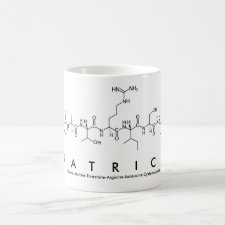
Authors: Eersels K, Van Grinsven B, Ethirajan A, Timmermans S, Jiménez Monroy KL, Bogie JFJ, Punniyakoti S, Vandenryt T, Hendriks JJA, Cleij TJ, Daemen MJAP, Somers V, De Ceuninck W, Wagner P
Article Title: Selective Identification of Macrophages and Cancer Cells Based on Thermal Transport through Surface-Imprinted Polymer Layers.
Publication date: 2013
Journal: ACS Applied Materials & Interfaces
Volume: 5
Issue: (15)
Page numbers: 7258-7267.
DOI: 10.1021/am401605d
Abstract: In this article, we describe a novel straightforward method for the specific identification of viable cells (macrophages and cancer cell lines MCF-7 and Jurkat) in a buffer solution. The detection of the various cell types is based on changes of the heat transfer resistance at the solid-liquid interface of a thermal sensor device induced by binding of the cells to a surface-imprinted polymer layer covering an aluminum chip. We observed that the binding of cells to the polymer layer results in a measurable increase of heat transfer resistance, meaning that the cells act as a thermally insulating layer. The detection limit was found to be on the order of 10^4 cells/mL, and mutual cross-selectivity effects between the cells and different types of imprints were carefully characterized. Finally, a rinsing method was applied, allowing for the specific detection of cancer cells with their respective imprints while the cross-selectivity toward peripheral blood mononuclear cells was negligible. The concept of the sensor platform is fast and low-cost while allowing also for repetitive measurements
Template and target information: macrophages, cancer cell lines, MCF-7, Jurkat



Join the Society for Molecular Imprinting

New items RSS feed
Sign-up for e-mail updates:
Choose between receiving an occasional newsletter or more frequent e-mail alerts.
Click here to go to the sign-up page.
Is your name elemental or peptidic? Enter your name and find out by clicking either of the buttons below!
Other products you may like:
 MIPdatabase
MIPdatabase









